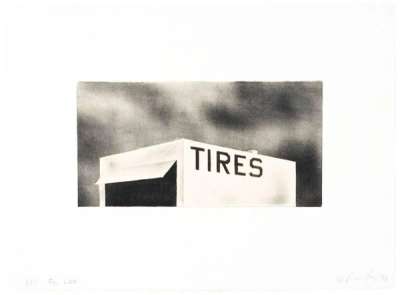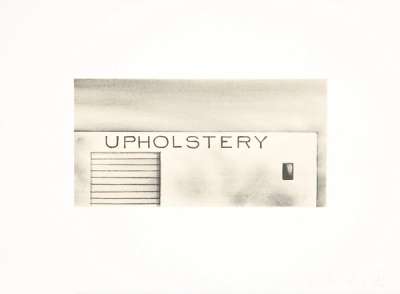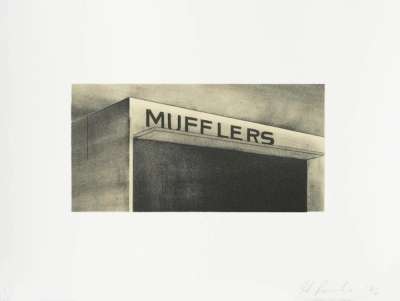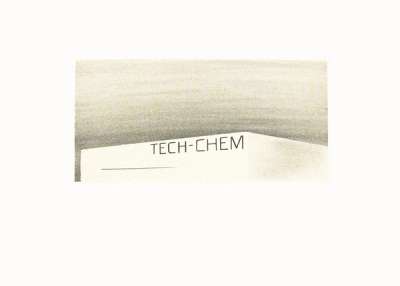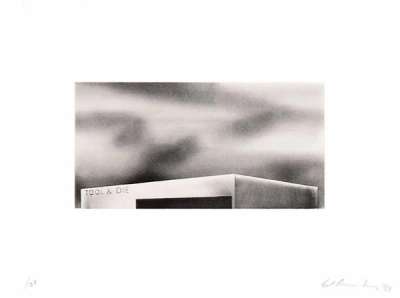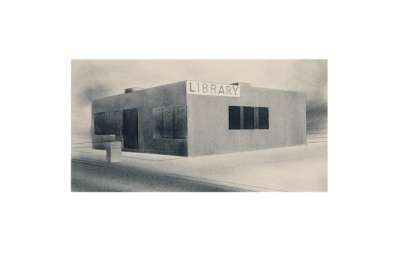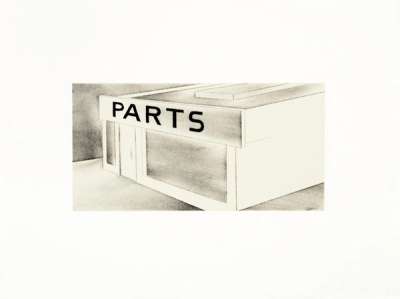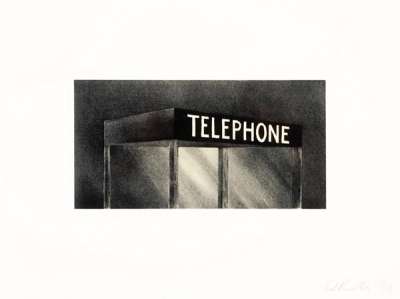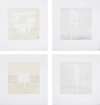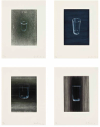Archi-Props
Ed Ruscha's Archi-Props print series, made between 1993 and 1997, is a compelling fusion of architectural elements and everyday objects, showcasing the artist's lens on the urban landscape. Featuring works such as Upholstery, Mufflers, and Telephone, this series delves into the mundane, transforming it into a study of form, function, and perception within the built environment.
Ed Ruscha Archi-Props For sale
Archi-Props Market value
Auction Results
| Artwork | Auction Date | Auction House | Return to Seller | Hammer Price | Buyer Paid |
|---|---|---|---|---|---|
 Tires Ed Ruscha Signed Print | 22 Oct 2013 | Bonhams San Francisco | £1,148 | £1,350 | £1,700 |
Sell Your Art
with Us
with Us
Join Our Network of Collectors. Buy, Sell and Track Demand
Meaning & Analysis
Ed Ruscha's Archi-Props series stands as a distinctive exploration within his extensive body of work, marrying the artist's fascination with the urban landscape to his conceptual examination of everyday objects. This series, encompassing works titled Upholstery, Mufflers, Tool & Die, Parts, Telephone, Tires, Tech-chem, and Library, presents a unique intersection of architecture and objecthood, where the ordinary is elevated to the realm of the extraordinary through Ruscha's discerning eye.
Ruscha, an artist renowned for his contributions to the Pop Art movement and his innovative approach to visual language, employs the Archi-Props series to probe the boundaries between object and architecture, utility and artifice. Each piece within the series isolates a mundane object, stripping it of its functional context and reimagining it as an architectural element. This act of recontextualisation invites viewers to reconsider their everyday interactions with the urban environment and the objects that populate it.
The series' emphasis on form and structure over function serves as a commentary on the increasingly blurred lines between the designed and the incidental in urban spaces. Ruscha's choice of subjects—ranging from automotive parts to telecommunications devices—reflects a broader inquiry into the role of technology and industrialisation in shaping contemporary landscapes and, by extension, human experiences within those landscapes.
Moreover, the Archi-Props series can be seen as an extension of Ruscha's ongoing engagement with the language of commercial signage. By transforming these objects into 'props' within an architectural narrative, Ruscha underscores the performative nature of space, where objects act as signifiers of broader cultural and societal narratives. This interplay between the signified and the signifier is a recurrent theme in Ruscha's work, here applied to the architectural sphere to evoke a sense of both familiarity and estrangement.
